At a recent workshop I did for a group of
Christian lawyers and spouses, one participant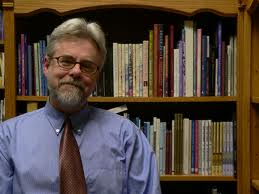 quipped that they sure got
quipped that they sure got
their money’s worth—I preached for an hour about why reading is
important so we can think and live Christianly, and I went over a
massive bibliography. I thought I’d share that biblio with you here. I wish I could somehow tell you all about each of
these books; my brief annotations don’t do them justice, and some are very, very special books.
This short
essay and long bibliography hopefully will be of interest even now, for
any readers who enjoy seeing some of the resources we promote when we
are out on the road. Granted, we custom designed this for the interests
and dispositions o that particular gathering (especially the books at
that particular gathering (especially the books at
the end of law and lawyering) but we trust you will like looking over
it. Sorry we didn’t list the prices. Email us at
read@heartsandmindsbooks or use the website inquiry page if you have any
questions.
You may order any of these at 20% off. Use the order form link at the end.
The CLS conference proceedings book with a quote by Abraham Kuyper
Nurturing
the Heart & Mind of the Christian Lawyer:
Helpful
Books, Old and New
Christian
Legal Society
Colorado
Springs, CO
October
2012
Being Sons & Daughters of Issachar (I Chronicles 12:32)
We must consider what many observe as an
ongoing weakness, if not a crisis, of the faithful relevance of evangelical
discipleship in twenty-first century culture. There are pressures from the culture–change, choice, speed,
technology–and weaknesses from within, even for those who sincerely affirm the
Lordship of Christ and count “the cost of discipleship.” Still, too often, as Richard
Foster writes in his classic Celebration of Discipline, our age is defined by the
“curse of superficiality.”
Cultural critics have reminded us of the
secularizing forces of modernity For a fancifully-written but trenchant
analysis see Os Guinness’ novel, The
Last Christian On Earth:
Uncovering the Enemy’s Plot to Undermine the Church (Regal.) Neil Postman
prophetically exposed our trivializing tendencies in Amusing
Ourselves to Death: Public Discourse in an Age of Show Business (Penguin.) Perhaps the most important book along
these lines in recent years has been The Shallows: What the
Internet is Doing to Our Brain by Nicholas Carr (Norton & Company. ) A more positive view is offered by Leonard Sweet in his
recent Viral: How Social Networking is Poised to Ignite
Revival (Waterbrook.)
These studies alert us to the cultural context where it is easy to not think as
deeply or live as wisely as we might.
Attention to this will help us be “in the world but not of it” knowing
how to wisely proclaim that Christ is Lord of “every square inch” of His
creation.
THREE PROBLEMS
1.
Crisis of compartmentalization (dualism)
2.
Crisis of erosion of the Christian mind (anti-intellectualism)
3.
Crisis of cultural captivity (accommodation/ideology)
These problems contribute to a crisis of
vocational distinctiveness and innovative faithfulness in public life
generally, and the work-world specifically. Some may describe this as a failure to robustly embody uniquely
Christian ways of practicing one’s career, related to a thin view of
integrating faith and thinking.
THREE (PARTIAL) SOLUTIONS
1.
Reading widely: God cares about all of
life.
2.
Reading seriously: God wants us to learn much.
3.
Reading attentively: God calls us to be discerning.
Such wide reading helps us realize that all
of life is being redeemed in Christ, that we can witness to His grace and point
towards His Kingdom most fruitfully as we live out a uniquely Christian
perspective in our callings and careers.
An integrated Christian way of working and living requires a framework,
a foundation, a coherent narrative, which some call an intentionally Christian
worldview. Reading faithfully is
one tool for developing a Christian worldview, way of life, and normative way
of working. In order to grow in
such faithfulness, we must see ourselves as life-long learners.
WORLDVIEW
Heaven is a
Place on Earth: Why Everything You Do Matters to God Michael Wittmer (Zondervan) One of the most accessible, practical and enjoyable books on
a Christian worldview. A great
book for those new to this approach.
Creation
Regained: Towards a Reformational Worldview (Eerdmans) Nearly a classic, very influential; very
Biblical, showing how a Christian way of seeing life must recall the goodness
of creation, the seriousness of the fall, and the broad scope of Christ’s
redemption.
The
Transforming Vision: Developing a Christian Worldview Brian J. Walsh & Richard
Middleton (IVP) The history of dualism, the rise of secularization, the idols
of the age, and a feisty, wholistic Christian agenda… follow this up with their
provocative Truth is Stranger Than It Used to Be:
Biblical Faith in a Postmodern Age (IVP.)
(Re)Thinking
Worldview: Learning to Think, Live and Speak in This World J. Mark Bertrand
(Crossway) Bertrand is a close pal
of CLS emcee Michael Schutt—and he’s written three gritty detective
novels! A wonderful contribution
to the field of worldview studies…
Total
Truth: Liberating Christianity from Its Cultural Captivity Nancy Pearcey (Crossway) Magisterial, perhaps a bit more philosophical than some,
tracing the rise of the dichotomy between facts and values, and how our
dualisms erode Christian conviction as public truth. Are secular gatekeepers using this as a strategy to banish
Biblical truth? Are Christians themselves guilty of hold a merely subjective
faith? Some say Pearcey is the
Francis Schaeffer of our time.
Desiring
the Kingdom: Worship, Worldview and Cultural Formation James K.A. Smith (Baker) One of the most talked-about worldview books in years, this
is the first of what will be a three part series. (The much-anticipated sequel,
Imagining the Kingdom: How Worship Works will release in February
2013.) This is a fabulously rich
rumination on how worldviews are not merely constellations of intellectual
notions, but are imagined and lived out, largely informed by our deepest
desires, which are shaped by our rituals/habits. Perhaps our ubiquitous secularizing rituals have formed us
more than our rather thin and inconsequential worship liturgies…
Many
Colors: Cultural Intelligence for a Changing Church
Soong-Chan Rah
(Moody) There is little doubt that our ethnic background and relationships with
those of other races has a profound and often unconscious influence of how we
see the world. This explores cross
cultural concerns and is a helpful survey of this complex and interesting
matter. Read his excellent first
book The Next Evangelicalism: Freeing the Church from Western
Cultural Captivity (IVP)
Misreading
Scripture with Western Eyes: Removing Cultural Blinders to Better Understand
the Bible E.
Randolph Richards & Brandon J. O’Brien (IVP) Brand new, this provocative
study–drawing on the insight of Rah’s first book about “Western Cultural Captivity”
perhaps–this shows how we too often read into the Bible our own (Western)
cultural bias. This is a worldview
expanding experiment, helping us not only see our own “cultural blinders” but
allowing us to read the Bible more honestly and fruitfully. Wow.
VOCATION AND CALLING
The Call:
Finding and Fulfilling the Central Purpose in Your Life
Os Guinness (W Publishing
Group) One of my all time favorite
books, this is richly written, thoughtful, and very inspiring. Christ calls us
so decisively that it effects all that we are and all that we do. A must-read.
A Journey Worth Taking: Finding Your Purpose
in This World Charles Drew (Presbyterian & Reformed) Informed by the
same vision as Guinness about the need for a thoughtful doctrine of vocation
and calling, this is more systematically developed following the unfolding
Biblical themes of creation, fall and redemption. Excellent.
Your Work
Matters to God
Doug Sherman & William Hendrickson (NavPress) For years, this has been my go-to book, inviting Christians
to a profound approach to our callings in the marketplace. Very well done.
Work
Matters: Connecting Sunday Worship to Monday Work Tom Nelson (Crossway) Written by a pastor
who expertly equips his congregation to serve God in their various occupations
and professions. Since it was
published just one year ago it has become one of the most popular and esteemed
books on the subject. Sidebars
tell of several workers in different careers at his church (including a lawyer)
explaining how they related worship and work. Very highly recommended.
How Then
Shall We Work? Rediscovering the Biblical Doctrine of Work Hugh Whelchel (Westbow
Press) Whelchel has served for
decades in the business world and then became director of the Washington DC
branch of Reformed Theological Seminary.
This is a theologically robust example of a worldviewish sort of
Calvinism that is well-rooted in the Biblical narrative that anticipates the
restoration of all creation and affirms the essential dignity of work. Short,
no-nonsense, and remarkably clear.
Love it.
Work
Matters: Lessons from Scripture Paul R. Stevens (Eerdmans) Stevens is a master of
this topic, having published many books on the interface of faith and the
marketplace, Christianity and work, the role of the laity, etc. In his insightful hands, these “jobs in
the Bible” come alive, profound, insightful, useful. Very, very good.
Read any of his many books!
Kingdom
Calling: Vocational Stewardship for the Common Good Amy L. Sherman (IVP) No book explores the ways in which a
serious approach to vocation can equip us to make a difference in the world as
thoroughly and thoughtfully as this.
Sherman explores four “avenues” or levels of how to serve God in one’s
career, making sure that our best efforts are, indeed, serving others and being
a blessing. A moving afterward by
Steve Garber. Highly recommended
for those who mean business!
Every Good
Endeavor: Connecting Your Work to God’s Work Timothy Keller with Katherine Leary Alsdorf (Dutton) Not
yet released, due November 2012 This soon to be released
book is already gathering quite a lot of anticipation. Keller makes a good case explaining
God’s intention for people to work, on His behalf, serving and sustaining the common good. He will give solid Biblical and
theological foundations for marketplace mission and, in the practical second
half, offer helpful observations and guidance for keeping faith in the
work-world. I’ve seen most of this already and very highly recommend it.
CHRISTIAN MIND
The Mind of
God James Emory
White (IVP) I love this wonderful
little book, and re-read it often.
Inspiring, handsome, full of insight and encouragement.
Your Mind’s
Mission Greg Jao (IVP) This not yet released
inexpensive booklet — due out in December 2012 — is a beautifully written
invitation to the life of the mind, teaching us to use our thinking and
scholarship in missional ways for God’s glory and the world’s good. Our bookstore is mentioned, so we’re
particularly pleased to tell you about it. Short, insightful, and very useful for students or anyone
wanting an overview of the call to use our mind in Christian ways.
Think: The
Life of the Mind and the Love of God John
Piper (Crossway) A very
thoughtful, passionate call to think well for the glory of God, to avoid the
temptations of the life of the mind, and to redouble our efforts to think well
and faithfully.
Jesus
Christ and the Life of the Mind Mark
Noll (Eerdmans) The long-awaited
serious follow-up to the seminal Scandal of the
Evangelical Mind. Beautiful and stimulating, asking
precisely what our theology about Jesus has to say to the project of nurturing
the Christian mind.
Philosophy:
A Student’s Guide
David Naugle (Crossway) This is the best brief overview of the need for a
Christ-honoring strategy of integrating faith and learning, essential for
learners of all sorts. Very wise
and truly enlightening.
Life, God
and Other Small Topics: Conversations from Socrates in the City Eric Metaxas (Plume)
Just out in paperback, this wonderful anthology (previously released as Socrates
in the City)
brings together some of the finest Christian intellectuals of our time,
offering insightful pieces about the coherence of Christian conviction. Authors
include Alister McGrath, N.T. Wright, Sir John Polkinghorne, Fr. Richard John
Neuhaus, Os Guinness, Jean Bethke Elshtain, and others… (Guess who has a blurb on the back?)
Wisdom and
Wonder: Common Grace in Science and Art Abraham Kuyper (Christian Library Press) Newly translated from the Dutch, these
essays were written by the famous Dutch pastor, journalist and statesman about
how the doctrine of common grace offers a unique way to approach both the arts
and the sciences. Important
stuff! A great introduction by
Wheaton College’s Vincent Bacote. Kuyper, as you know by now, spoke the “every square inch” line on your conference proceedings book.
CULTURAL ENGAGEMENT
The Next
Christians: Seven Ways You Can Live the Gospel and Restore the World Gabe Lyons (Multnomah) The first half of this upbeat book
explains the ways a more wholistic and nonpartisan vision of the Kingdom can
help us avoid the distractions of the culture wars and the second half makes a
case for seven key shifts that younger evangelicals seem to care deeply about. This book is important for the
bell-weather shifts it helpfully explains, and, I believe, because it is truly
Biblically faithful. We indeed
need to hear these concerns and embrace this vision of being God’s agents for
cultural restoration.
You Lost
Me: Why Young Christians Are Leaving Church…and Rethinking Faith David Kinnaman (Baker)
After the research done for his important book Unchristian, this fine author, head of
the Barna Group, offers conclusions drawn about how to keep young adults
involved in church and faith.
Really interesting and exceptionally important for most churches,
wishing to keep our 20-something engaged and faithful.
A Public
Faith: How Followers of Christ Should Serve the Common Good Miroslov Volf (Baker) Volf is one of the more
popular theologians working today and these lectures wonderfully capture the
need to be involved in faithful Christian witness even as we recognize the
quandaries of pluralism. Highly
recommended. For a lovely and profound collection of short essays by Volf, see
his Against the Tide: Love in a Time of Petty Dreams and
Persisting Enmities (Eerdmans.)
Culture
Making: Recovering Our Creative Calling Andy Crouch (IVP) If you haven’t read this yet, you
owe it to yourself to consider his call to honor the joys of taking up the
cultural mandate and reflecting more intentionally the image of our creative
God. The section evaluating
various postures towards culture (just critiquing? merely copying?) is worth
the price of the book.
The Social
Animal: The Hidden Sources of Love, Character, and Achievement David Brooks (Random House)
Brooks, as you surely know, is one of our best and most balanced pundits and he
here offers a novel–with tons of excursions into social research—pondering
what causes human happiness. One
of the most interesting and insightful books of recent years. What a fun and compelling way to learn!
Abraham
Kuyper: A Short and Personal Introduction Richard Mouw (Eerdmans)
Mouw is a gracious and clear writer and here he tells why discovering
this Dutch theologian of the ninteenth century, a social critic (and Prime
Minister) was a life-saver for him.
The best simple explanation of Kuyperianism — very highly
recommended! This is the
guy, you know, who preached that Christ claims “every square inch” of his
creation. I love this little book, and am grateful for Mouw’s contribution.
Unfashionable:
Making a Difference in the World by Being Different Tullian Tchividjian
(Multnomah) What a wonderful, wonderful study, challenging and yet
hopeful. Perhaps we ought not too
quickly attempt to be relevant; maybe the best thing we can do is be
unfashionable. A powerful critique
of cultural accommodation and less than principled ways of engaging the
world.
To Change
the World: The Irony, Tragedy, and Possibility of Christian Faith in the Late
Modern World
Davidson Hunter (Oxford University Press)
Again, this is a much-discussed and often-debated book about how best to
embody a “faithful presence” in the workplace as a way to slowly and
effectively bring God’s hope to a hurting culture. Erudite, significant.
Incarnational
Humanism: A Philosophy of Culture for the Church in the World
Jens
Zimmerman (IVP Academic) One of
the most rigorous, thoughtful, interesting, and helpful studies of this
sort. What a fabulous example of
mature Christian considerations, invoking “Christian humanism” as a helpful way
to appreciate a redemptive sort of attention to God’s world.
Unspeakable:
Facing Up to the Challenge of Evil Os
Guinness (HarperOne) One can
hardly talk about witnessing in the real world or engaging culture without
giving some coherent account of suffering and evil, how to understand it, and
what to do about it. One of the
best studies about this, eloquent and honest, deep and yet very engaging.
Evil and
the Justice of God N.T. Wright (IVP) Again, any effective and faithful
approach to living out the social implications of the gospel simply must relate
to the problem of evil and embrace the brokenness of our times. Wright is a solid scholar and faithful
preacher of the resurrection. Few
have so helpfully related Christ’s death and resurrection to this question.
The Space
Between: A Christian Engagement with the Built Environment Eric O. Jacobsen (Baker
Academic) What a splendid,
interesting, helpful, inspiring call to care about our world, the culture we
inhabit, and how to “see” things anew.
Does God care about “sidewalks of the Kingdom”? Should we? What a tremendous study, teaching us so much about culture,
society, lifestyles, worldviews, and Christ’s invitation to live in ways that
enhance true community. Very
highly recommended. Part of a
series of books called “Cultural Exegesis.”
SPIRITUAL FORMATION
Reordered
Love Reordered Lives: Learning the Deep Meaning of Happiness David Naugle (Eerdmans) What does it mean to love the right things, in the right way? Can we be happy as we allow God to
change our desires and give us the right priorities. I think this is one of the great books of recent years, one
that should be better known among us. Naugle writes out of a very intentional,
distinctively Christian worldview, with a keen awareness of the importance of
our interior lives. Wonderful.
Fabric of
Faithfulness: Weaving Together Belief and Behavior Steven Garber (IVP) Garber
did advanced scholarship researching how young adults apply what they know, how
we take advantage of our college experiences, and how new-found faith can be
lasting into mid-life and beyond.
With great theological and literary depth he identifies three things
that allow learning to last, faith to grow, and belief to be woven together in
the whole of life. A long-time
friend of CLS, Garber is the extraordinary director of the Washington Institute
for Faith, Vocation, and Culture.
A
Traveler’s Guide to the Kingdom: Journeying Through the Christian Life James Emery White (IVP)
White takes us on a virtual journey around the world, teaching an essential
Christian truth at each place. Go
with him to the Eagle and the Child,
Billy Graham’s NC home, the Ten Boom House in Holland, Chartres
Cathedral, Iona Abbey, Luther’s
Wittenberg, Dachau, to and
more. A wonderful way to learn so
much, about Christian history, about the world, and about our daily
discipleship.
Renovation
of the Heart: Putting on the Character of Christ Dallas Willard (NavPress)
This newly re-issued paperback is
a gem, perhaps his most accessible and useful book. What does it mean to become transformed into the ways of
Christ?
Satisfy
Your Soul: Restoring the Heart of Christian Spirituality
Bruce Demarest
(NavPress) This is another
under-appreciated gem, a treasure-chest helping anyone seriously interested in
spiritual formation.
Christ
Plays in Ten Thousand Places, Eat This Book, The Jesus Way, Tell It Slant,
Practice Resurrection, Eugene Peterson (Eerdmans) All five of these meaty
“conversations on spiritual theology” are well worth working through – each
illustrates Peterson’s profound and mature ways of relating Bible, theology,
spirituality and daily discipleship with great insight and a no-nonsense
style. In years to come this set
will be considered as among the most important enduring Christian books of the last decade. If you’ve never
read Peterson, A Long Obedience in the Same Direction:
Discipleship in an Instant Society (IVP) is still his most
popular. Where
Your Treasure Is: Psalms That Summon Us From Self to Community
(Eerdmans) is a
personal favorite.
Sacred
Rhythms: Arranging Our Lives for Spiritual Transformation Ruth Haley Barton (IVP) I
highly recommend any and everything this wonderful writer does, but this may be
my favorite. One of the best studies
of the classic spiritual disciplines, inviting and vital. See also the companion volume Invitation
to Solitude and Silence: Experiencing God’s Transforming Presence
(IVP.)
Celebration
of Discipline
and Prayer: Finding the Heart’s True Home Richard Foster
(HarperOne) I suppose you know his
many books, but these two are the most true and enduring classics. Read any and all of his, regularly.
A Praying
Life: Connecting with God in a Distracting World Paul Miller (NavPress) I do not list this one just because he
is speaking here with us this year—this is our biggest selling book on prayer
this year, and certainly in my top three or four books about prayer, ever. Nicely written, very helpful, mature.
Wow.
25 Books
Every Christian Should Read: A Guide to Essential Spiritual Classics
edited and
compiled by Richard Foster, Dallas Willard, Phyllis Tickle, and Richard Rohr et
al (HarperOne) Foster’s Renovare team compiled this very useful resource book
helping us all more greatly appreciate some of the best spiritual books of the
last 2000 years. Other
contemporary writers chime in with sidebars, interviews and their own eccentric
lists making this a book-lovers delight and a reliable guide to years of fruitful
devotional reading. Kudos to our friends at this years CLS bookstore for stocking all these books!
JUSTICE
The Little
Book of Biblical Justice Chris Marshall (Good Books)
This is as succinct and basic as it gets, with solid, Biblical teaching,
quite detailed, full of the nuance of the Bible itself, yet inexpensive and brief. (75 pages.) Makes an excellent small group study…
Generous
Justice: How God’s Grace Makes Us Just Timothy Keller (Dutton) Clearly rejecting the
tradition which sees evangelical faith concerns about personal salvation and
the “social gospel” concerned with only societal reform, Keller insists that
the classic doctrine of justification should give us great passion for social
justice. We dare not bifurcate
doctrine and action, and true evangelical piety should lead to commitments to
care about justice. Very, very
helpful.
The Good News About Injustice and Just
Courage Gary Haugen (IVP) The International Justice Mission may
be one of the most exciting and fruitful international Christian legal
organizations of our time. These are foundational, evangelical studies of God’s
heart for justice and how we can be involved as agents of His healing and
reconciliation. Powerful, basic, vital.
Compassion,
Justice and the Christian Life: Rethinking Ministry to the Poor Robert Lupton (Gospel
Light) This thin paperback packs a wallop as it instructs us on how to
meaningful engage in advocacy for the poor, standing for justice amidst great
need. She his very moving classic Theirs
is the Kingdom: Celebrating the Gospel in Urban America and the important Toxic
Charity: How Churches and Charities Hurt Those They Help (And How to Reverse
It) recently published by HarperOne.
The Just
Church: Becoming a Risk-taking, Justice-Seeking, Disciple-Making Congregation Jim Martin (Tyndale)
Co-published with IJM this is a guidebook moving us “from apathy to action.”
Passionate and Biblical, this is loaded with helpful examples, ways to take
“next steps” and things congregations can do. Foreword by Gary Haugen.
When
Helping Hurts: How To Alleviate Poverty Without Hurting the Poor Steve Corbett & Brian Fikkert (Crossway) Seasoned
activists explain the ins and outs of serving the poor, reforming social
policy, and working in sustainable ways for the good of all. Very popular, because it is very
impressive.
Go + Do:
Daring to Change the World One Story at a Time
Jay Millbrandt (Tyndale)
Active in CLS activities, this vibrant young leader directs the
wonderful Global Justice Program at Pepperdine School of Law. Great, great stories, helpful
motivation and helpful insight.
This is more than just interesting and inspiring, it is remarkable. As his friend and mentor Bob Goff
writes, “Jay is equal parts guts and grit. Go and Do
reminds us that
we all have an important role to play in transforming
the world. Jay illustrates how you might be surprised what you
will accomplish when you take you passions out for a lap around the
world.”
Welcoming
the Stranger: Justice, Compassion & Truth in the Immigration Debate Matthew Soerens & Jenny
Hwang (IVP) There are only a few
Biblically-based and socially relevant books on a Christian view of this vexing
issue, and this is my favorite. The authors work with World Relief, the relief
and development agency of the National Association of Evangelicals and their
work is highly respected. Kudos.
Justice: Rights & Wrongs
Nicholas Woltersdorff (Princeton University Press) Recently reviewed in the CLS
Christian Lawyer journal, this is serious,
philosophical stuff, by an eminent Christian philosopher. Anyone called to
legal work in any capacity needs to reflect long and hard on the nature of justice,
and this scholarly work will help. Important and weighty. See the vital continuation, deep
ruminations called Justice and Love
(Eerdmans.)
CITIZENSHIP & POLITICS
Uncommon
Decency: Christian Civility in an Uncivil World Richard Mouw (IVP)
I continue to say this is one of my all time favorite (and so very
necessary) books, delightfully and reasonably calling for public etiquette,
charitable but vibrant public witness, offered with principled civility. If
only…
The Case
for Civility: And Why Our Future Depends On It Os Guinness (HarperOne) This thoughtful and passionate work
goes beyond the obvious call for public manners, but offers a framework and
structure, based on the strengths of the American Bill of Rights, for freedom
from and freedom for expression of our deepest convictions. This is an urgent and necessary
contribution, an important, balanced perspective. One need not agree with every detail to recognize the genius
of this pluralistic approach.
A Free
People’s Suicide: Sustainable Freedom and the
American Future Os Guinness (IVP) Here, Guinness has
finally written out further work on a topic for which he is known, offering a
brilliant assessment of the genius of the American framers and the brilliance
of the American experiment. Yet,
as he painstakingly shows, to sustain freedom requires certain habits of the
heart, civic virtues, including freedom of religion, and the subsequent virtue
that emerges from a freely religious people. This is a civic education essential for freedom to flourish,
offered by a Brit who has deep gratitude for, and fears about, the American
ideals.
Was America
Founded as a Christian Nation? John Fea (Westminster/John
Knox) Nominated for the prestigious Washington Prize, it is good to see such
balanced, thoughtful scholarship that takes into account the diverse religious
convictions of our founders and framers.
Wonderfully written and quite helpful.
God and the Constitution: Christianity and
American Politics Paul Marshall (Rowman & Littlefield) This great
hardback is somewhat mis-titled as it is not really about the Constitution as
such. It is the best overview of a
distinctively Christian view of government yet done, relating properly explore
Christian principles to contemporary political philosophy in a very balanced
way. Very helpful for anyone pondering the role of government and a
Biblically-informed view of politics.
Political Thought: A Students Guide Hunter Baker (Crossway) This is
another volume in the brief but potent “Reclaiming the Christian Intellectual
Tradition” series edited by David Dockery. Baker, who holds a PhD from Baylor and a JD from the
University of Houston, is a dean at Union University. Here, he succinctly defines the important terms, explains the basics of political
philosophy, offering conservative Christian insight into the classic questions,
the vital debates, and the ongoing quandaries. Nicely done.
Church, State and
Public Justice: Five Views edited by P. C. Kemeny (IVP)
Five scholars offer their take on uniquely Christian politics, and then the
other four respond. Excellently presented views include a Catholic perspective,
a classical “separationist” view, a moderate Anabaptist approach, a
“principled-pluralist” neo-Calvinist view and a mainline Protestant
social justice emphasis. Wow.
Political Visions
and Illusions: A Survey & Christian Critique of Contemporary Ideologies David
Koyzis (IVP) No one volume is a profound and readable in its study of the roots
of Western thought and the history of the development of political theory.
Koyzis astutely exposes the Enlightenment roots of both liberals and
conservatives, and helps us understand the dynamics of ideological conflict in
the modern world. Very significant.
Just Politics: A
Guide for Christian Engagement Ronald J. Sider (Brazos Press) If I were to pick
one book on politics for educated lay readers, this would be it. Sider offers a faithful methodology,
starting with the Biblical narrative as it shapes our worldview and public
philosophy, to a coherent view of the state, to an examination of the pertinent
Biblical texts, to a judicious study of various sides of the contemporary
issues. Biblical, gracious, balanced, this is a fine example of the way
evangelical thoughtfulness can make a contribution to our civic lives. An early friend of CLS, James
Skillen, says “Ron Sider builds on years of experience and conversations with
Christian across a very wide spectrum. His balance is better than that of most
who want to influence politics for the better. And biblical faith is the solid platform on which he builds
and balances. Listen to Ron carefully before taking your next step.”
Left, Right and
Christ: Evangelical Faith in Politics Lisa
Sharon Harper & D.C. Innes (Russell Media) There are two forwards to this
fun, feisty back-and-forth conversation — Jim Wallis of Sojourners and Marvin
Olasky of World magazine. That
should get you interested!
These two evangelical leaders are friendly and fair as they offer points
and counterpoints, offering Christ-honoring insights based on serious Bible
study and faithful action in the world of political activism. Harper is a former IVCF evangelist who
now works at Sojourners. Innes is
an Orthodox Presbyterian pastor and esteemed professor at the King’s College in
NYC. Very interesting!
Body Broken: Can
Republicans and Democrats Sit in the Same Pew? Charles
Drew (New Growth Press) This
revised version of the very moderate and thoughtful A
Public Faith comes with wise endorsements from the like of J.I. Packer
and Timothy Keller. As William
Brewbaker (professor of law at the University of Alabama) writes, “This book is
a needed antidote to the worldliness of much Christian political involvement
whether of the conservative or liberal variety. It should be required reading
in our churches!” It is low-key
and gentle, allowing that we have great freedom (indeed, obligation) to be
involved in civic life, but that we must put “first things first” and honor one
another within the unity of the Body of Christ. This is not only sensible, it is essential.
CRIME, LAW & LEGAL THEORY
Crime and Its
Victims Dan Van Ness (IVP) When Chuck Colson moved from only
prison evangelism and ministry to include work for more structural reforms, he
commissioned Van Ness to do a foundational Biblical study of crime and
punishment. This is the best volume on the topic.
Changing Lenses: A
New Focus for Crime & Justice Howard Zehr (Herald Press) With
Van Ness’ contribution to evangelical discourse around “restorative
justice” as a basis, other (Mennonite) activist-scholars have developed
the idea into greater clarity around reforms, values and proposals for more
Christ-like approaches in criminology. A very important contribution, which
should be considered.
The New Jim Crow:
Mass Incarceration in the Age of Colorblindness Michelle Alexander (The New Press) Few current events books have been as
discussed as the author meticulously shows the horrific imbalance of African
American incarcerations for drug charges in relative comparison to the relative
number of Caucasians. Whether you
concur with all her serious conclusions, you should be familiar with this book.
Law and
Revolution: The Formation of the Western Legal Tradition
Harold J. Berman (Harvard University Press) A true classic, this, like other books of the esteemed Dr.
Berman, is essential. See also his
Law and Revolution Part II: The Impact of the Protestant Reformations on the Western
Legal Traditions (Harvard University Press.)
Christian
Perspectives on Legal Thought
edited by Michael McConnell, Robert Cochran and Angela Carmelia (Oxford University Press) Quite simply
magisterial, a fabulous anthology of some of the best serious thinkers on
various aspects of Christian legal theory. Very useful, although is it mostly quite serious.
God’s Joust, God’s
Justice: Law and Religion in the Western Tradition John
Witte, Jr (Eerdmans) I would be remiss not to note something of the prolific,
substantive scholar, Dr. Witte. He is one of the leading scholars in this
field, now the director of the Center for the Study of Law and Religion at
Emory University. This “traces the historic struggles that generated the
constitutional separation of church and state…”
Silenced: How
Apostasy and Blasphemy Codes Are Choking Freedom Worldwide Paul Marshall & Nina Shea
(Oxford University Press) One of the urgent concerns in the world today (and a
fascinating one for those interested in law, justice, and religious freedom) is
this movement to restrict religious speech and conscience in many Islamic
lands. This is a passionate,
well-documented, and important overview of this growing crisis. The forward is by the late President of
the world’s largest Muslim organization, and the former Prime Minister of
Indonesia.
Natural Law for
Lawyers J. Budziszewski (ACW Press) This is as slim and basic as
it gets, the theology of natural law explained succinctly for students or those
needing a quick refresher.
Happily, this applies the theory to and for lawyers.
The Believers
Guide to Legal Issues Stephen Bloom (Living Ink) What a joy to see a
simple, clear-headed, spiritually-based introduction to legal issues. Most
Christian attorneys would know all this, but it is an ideal tool to share with
others in your church or practice, framed by simple gospel insight. Nice.
The Lawyers Calling:
Christian Faith and Legal Practice Joseph Allegretti (Paulist
Press) One of the best overviews of the ways in which faith shapes legal
practice, the metaphors that are used to imagine what lawyers are and do, and
how to be a responsible, ethical, attorney. Semi-scholarly, readable,
insightful, from a Roman Catholic lawyer drawing on many Protestant sources.
Very helpful.
Can a Good Lawyer
Be a Good Lawyer? edited Thomas Baker (University of Notre Dame Press) An
ecumenical collection of essays, sermons, meditations, and reflective pieces,
including some written by active CLS leaders. You may not love each and every
entry, but most are good, and a few are great.
Redeeming Law:
Christian Calling and the Legal Profession Michael Schutt (IVP) I believe
that every career and profession should be so fortunate as to have such a
winsome, readable, and yet profound and scholarly treatment of nearly every
aspect of the foundations of the field. Not necessarily the most simple or
practical, but it is the most essential book for every Christian lawyer’s
library. Highly, highly recommended. Great footnotes lead in many good
directions for further study, and the discussion questions make it ideal for
personal growth or small group conversation. Get several and pass ’em out!
First Be
Reconciled: Challenging Christians in the Courts Richard Church (Herald
Press) Many attorneys struggle with the Biblical verse about not going to
court, and this Mennonite lawyer take is most seriously. Provocative and
important, attempting to be serious about Biblical obedience in the reformation
of legal attitudes and practices.
TOP 12 MISCELLANEOUS FAVORITE BOOKS OF 2012
(SO FAR.)
How God
Became King: The Forgotten Story of the Gospels N.T. Wright (HarperOne) I love reading books
about Jesus and I love reading books about the centrality of His Kingdom
coming. Here, in clear but
thoughtful prose, one of our most important evangelical New Testament scholars
offers large concerns about how we have come to miss the core themes of Jesus’
own teaching, and have consequently misunderstood the heart of the gospel. It garnered rave reviews from J.I.
Packer and Dallas Willard. We are
grateful for two Wright books about the gospels this year — Simply
Jesus: A New Vision of Who He Was, What He Did, and Why He Matters (HarperOne) which is also a
great gift to God’s people. Very
helpful, balanced, thoughtful.
Crossed
Lives — Crossed Purposes: Why Thomas Jefferson Failed & William
Wilberforce Persisted in Leading an End to Slavery Ray Blunt (Resources Publications) A truly unique
historical study, this wonderfully-told story compares and contrasts the two
famous leaders, both who started out resolved to fight slavery. One kept his commitments and deepened
them over a lifetime of struggle; the other, of course, ended up not only
reneging on his youthful convictions, but compromised in the worst of
ways. Why? Not only does Blunt discover
fundamental worldview differences between the two great men, but shows that
while WIlberforce had accountability and support (in his famous Clapham sect)
Jefferson has no truly intimate friends.
Besides this excellent overview–he unveils so much in such an
informative manner–Blunt draws helpful leadership lessons for any contemporary
leader making this a doubly useful resource. Blunt has taught this material at the Naval Academy, in
churches, and in the setting of a classically-oriented Christian prep
school. Very, very impressive.
Charity and
Its Fruits Jonathan Edwards (Crossway) Newly
edited by Kyle Strobel, this is a wonderful new edition of an under-appreciated
classic. Many know the formidable
mind and deep passions of the Puritan scholar, pastor, and college President,
but too few know his hefty study of 1 Corinthians 13 (and more, besides.) This new version will hopefully make
this treasure into a standard. The
greatest of these, after all…
Love Does:
Discover a Secretly Incredible Life in an Ordinary World Bob Goff (Nelson) One of the most exciting, audacious,
hilarious, inspiring collection of life stories we’ve ever read. You may know Goff, either as a former
CLS Conference Keynote Speaker, as global justice advocate who has fought
sexual trafficking and worked for the rule of law in Uganda, or as the crazy
mentor of Donald Miller in A Million Miles in a Thousand Years: How I
Learned to Live a Better Story (Nelson.) Read even a few
of these wild episodes and you, too, will want to have more “skin in the game”
and find ways to “get to the do part” of faith.
Run Home
and Take a Bow: Stories of Life, Faith, and a Season with the Kansas City
Royals Ethan D. Bryan (Samzidat
Creative) Ethan is an energetic youth worker, worship pastor,
singer-songwriter, social justice activist, husband, dad, and neighborhood
friend. But he’s also a very
serious baseball fan and this memoir tells of a summer going to all the home
games of his beloved Kansas City Royals
— and what a season it was!
Baseball fan or not, you will enjoy reading about his weekly
discoveries, what happens along the way to, during, or after the games. This well written book will thrill
baseball fans, of course (George Will called it “outstanding”) but, better,
will help you see God in the ordinary, realize how to be more faithful as a
Christian parent or friend, and will deepen your own resolve to discern God’s
hand in the ups and downs of your daily life.
The Exact
Place: A Memoir Margie
Haack (Dulous Press) Haack was mentored by Edith and Francis Schaeffer and she
and her husband, Denis, run “Ransom Fellowship” and edit Critique, a journal helping
Christians develop skills of cultural discernment. Margie is a spectacular writer, funny and poignant, and this
memoir tells of her growing up rural and poor in Northern Minnesota. God had her at the “exact place” as her
life unfolded, she comes to believe, in order to have her open to Christ’s
amazing grace. This is a story you
will not forget.
Flunking
Sainthood: A Year of Breaking the Sabbath, Forgetting to Pray, and Still Loving
My Neighbor Jana Riess (Paraclete) I
have read a number of great books on spirituality this year, but this, well,
I’m almost embarrassed to admit, was my personal fav. Each month this snarky, witty writer tackles a great
devotional classic (and a spiritual discipline to go with it) and, well, shall
we say, it doesn’t go well. Yep.
A Hobbit
Journey: Discovering the Enchantment of J.R. R. Tolkien’s Middle-Earth
Matthew
Dickerson (Brazos Press) There are plenty of books about Tolkien, and many seem
very interesting and rewarding.
This is extraordinary, though, bringing the deepest questions of Middle
Earth to contemporary ethical issues. As Jeffrey Overstreet writes of this,
“Tolkien’s stories are countries full of treasure that will go undiscovered and
unappreciated unless we learn how to be attentive treasure hunters. Matthew
Dickerson writes as one who has spent his summers in the Shire, hiked every
trail in Mirkwood Forest, taken counsel from Gandalf, and argued with Gollum
and Smaug. It’s as though he sharpened the tools of his intellect in deep
conversation with Tolkien himself.”
Thomas Shippey, Tolkien’s biographer, says “If anyone should still doubt
Tolkien’s applicability and relevance to the twenty-first century, this is the
book to put in their hands.”
Emergence
Christianity: What It Is, Where It Is Going, and Why It Matters Phyllis Tickle (Baker) Like
it or not (understand it or not) this is a great writer’s observant ruminations
on the shifts in Western culture, the trends in Christianity, with special
attention to the emergent conversation within what some call
post-evangelicalism. Fun, breezy,
but very important, this is a great overview, up to date and
well-informed. For a somewhat
parallel, but more theologically serious (and global) anthology, see the brand
new The Gospel After Christendom: New Voices, New Cultures, New
Expressions edited
by Ryan Bolger (Baker Academic.)
The Meaning
of Marriage: Facing the Complexities of Commitment with the Wisdom of God
Timothy and
Kathy Keller (Dutton) Keller is
known as an astute, Reformed preacher, a sophisticated urban church planter, a
top-notch, urbane apologist, and a passionate advocate for the cultural
transformation that happens when people of faith apply their convictions to
their work. Who knew he was such a
kindly pastoral counselor and that, along with his wife, could speak so
tenderly about the deepest purposes of sexuality, relationships, and
marriage. Of course, he does some
theologizing along the way, as well as placing the Biblical perspective within
the changing contexts of the late modern world, but, still, this is Keller
doing a self-help type marriage book.
One that is also very good for those not married. Three cheers for his candor, for his wife’s
good voice throughout, and for their honesty about their own lives together.
Art as
Spiritual Perception edited by James Romaine (Crossway) We stock a large selection of books
about the arts and (as we do with CLS) try to encourage organizations like IAM
or CIVA with book lists and affirmation of their best authors. This is a collection put together to
honor the recently retired art history professor of Wheaton College, Dr. John
Walford. A dozen of his students,
colleagues and friends write amazing chapters about how to see to the root of the
religious orientation of various artists.
From Calvin Seerveld to William Dryness to Marleen Hengelaar-Rookmaaker,
this is an anthology that will impress anyone seriously interested in the arts
or anyone that wants to learn more about the art of Christian cultural
analysis. Full-color art reproductions
on heavy stock glossy paper makes this a wonderful, beautiful volume. Kudos.
A Place in
Time: Twenty Stories of the Port William Membership
Wendell Berry
(CounterPoint) Berry may be the
most often cited contemporary novelist among serious Christian literary buffs
and his essays, poems, novels and stories have been acclaimed by lovers of
words from across the cultural and political spectrum. I hope you know his
wondrous novels such as Jayber Crow and Hannah Coulter or The
Memory of Old Jack. This brand new collection of
short stories is sure to please, taking its place beside the previous Port
William collection, That Distant Land. A new book by him is truly a publishing event, and this
collection of stories just arrived!
I hope you have read at least some of his elegant, thoughtful essays
(about farming, sustainable communities, agrarian values, God’s care for the
Earth, the erosion of social life brought on by fast-paced modern culture, the
dangers of pesticides, the trouble
with consumer capitalism, etc.)
And, oh, by the way, his prestigious Jefferson Lectures of the Spring of
2012 were just released: It All Turns on Affection: The
Jefferson Lectures and Other Essays (CounterPoint.) Thanks be to God for prophets and writers such as this.
DISCOUNT
ANY BOOK MENTIONED
20% off
order here
takes you to the secure Hearts & Minds order form page
just tell us what you want
inquire here
if you have questions or need more information
just ask us what you want to know
Hearts & Minds 234 East Main Street Dallastown, PA 17313 717-246-3333
read@heartsandmindsbooks.com


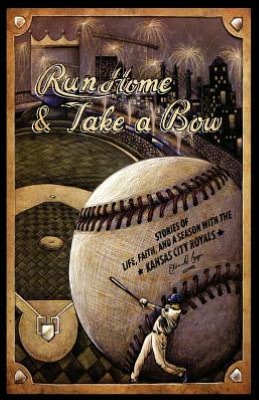 It is World Series season
It is World Series season
 older woman, clearly struggling to walk with her canes, a person
older woman, clearly struggling to walk with her canes, a person Another wonderful feature
Another wonderful feature a foil for
a foil for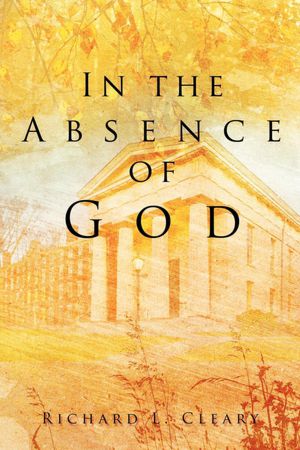 f the title When God is Absent (Xulon Press; $24.95) sounds a bit like some
f the title When God is Absent (Xulon Press; $24.95) sounds a bit like some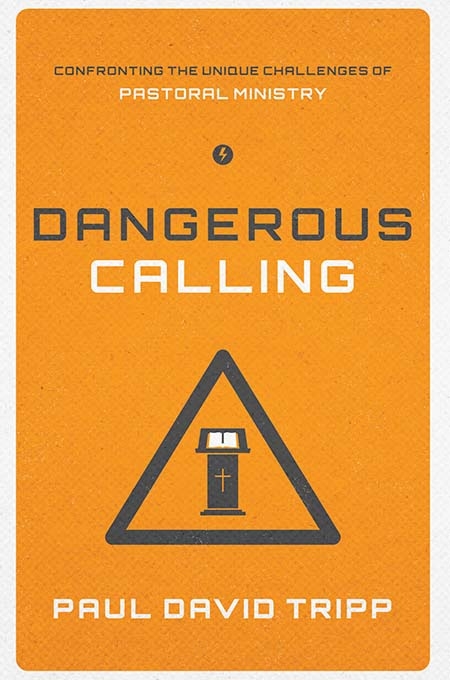 angerous Calling: Confronting the Unique Challenges of Pastoral Ministry Paul David Tripp (Crossway) $22.99 You may know Tripp, a conservative, Reformed scholar and Biblical counselor who has written wisely about pastoral care, about personal issues, about the radical power of the gospel, about new life found in Christ alone, as we appropriate His grace. This is hard hitting stuff as he, after years of traveling and listening well during thousands of conversations, is greatly concerned about the spiritual life of pastors and leaders, but also of those who train, support, and are led by them. That is, nearly all of us, at any and every level of church life! We should all care about playing a part in protecting the pastorate. As it says on the flyleaf, this book “reveals the truth that the culture surrounding our pastors is spiritually unhealthy — an environment that actively undermines the well-being and efficacy of our church leaders, and thus our entire church body.” Joshua Harris observes that, for pastors, “this book is ‘good’ in the same way that heart surgery is good…and it just might save your life.” Seminarians, congregational leaders, and pastors — as one reviewer put it “whether you’ve been in ministry 20 minutes or 20 years” you need this book.
angerous Calling: Confronting the Unique Challenges of Pastoral Ministry Paul David Tripp (Crossway) $22.99 You may know Tripp, a conservative, Reformed scholar and Biblical counselor who has written wisely about pastoral care, about personal issues, about the radical power of the gospel, about new life found in Christ alone, as we appropriate His grace. This is hard hitting stuff as he, after years of traveling and listening well during thousands of conversations, is greatly concerned about the spiritual life of pastors and leaders, but also of those who train, support, and are led by them. That is, nearly all of us, at any and every level of church life! We should all care about playing a part in protecting the pastorate. As it says on the flyleaf, this book “reveals the truth that the culture surrounding our pastors is spiritually unhealthy — an environment that actively undermines the well-being and efficacy of our church leaders, and thus our entire church body.” Joshua Harris observes that, for pastors, “this book is ‘good’ in the same way that heart surgery is good…and it just might save your life.” Seminarians, congregational leaders, and pastors — as one reviewer put it “whether you’ve been in ministry 20 minutes or 20 years” you need this book. 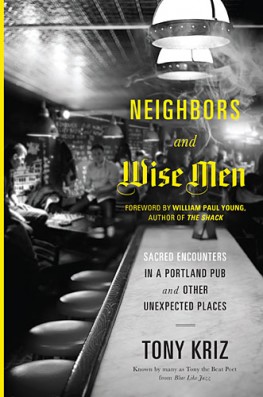 eighbors and Wise Men:
eighbors and Wise Men: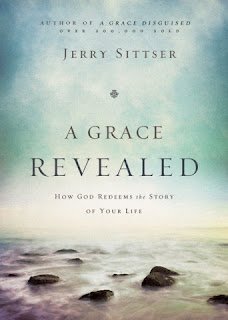 Grace Revealed: How God
Grace Revealed: How God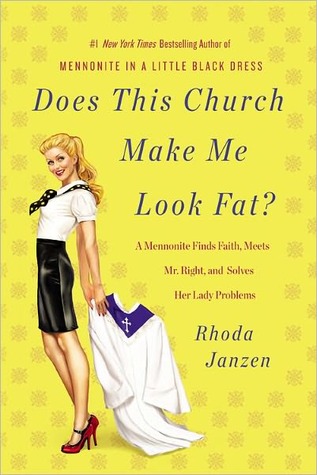 oes This Church Make Me
oes This Church Make Me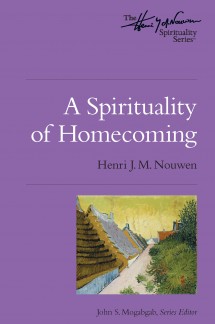 Spirituality of
Spirituality of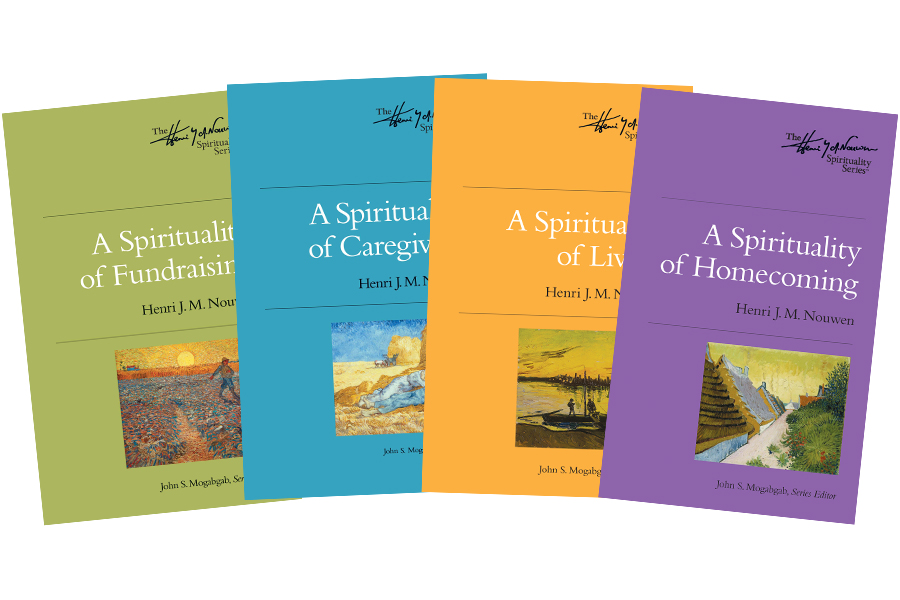
 esus: A Theography
esus: A Theography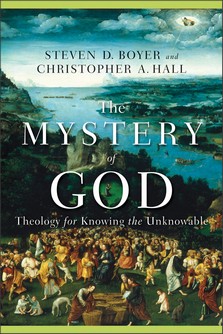 he Mystery of God: Theology for
he Mystery of God: Theology for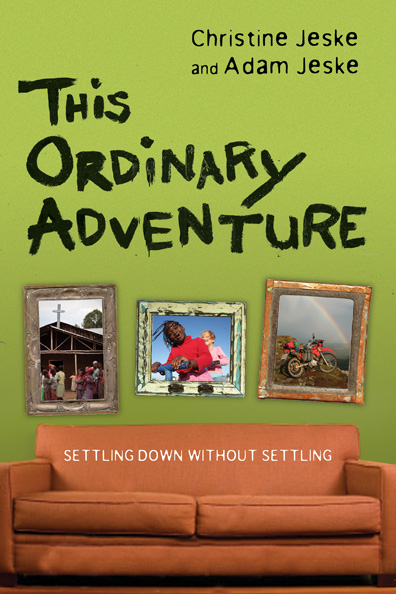 his Ordinary Adventure: Settling
his Ordinary Adventure: Settling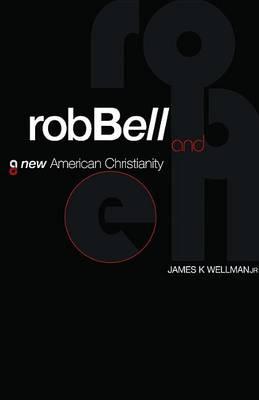 ob Bell and a New American
ob Bell and a New American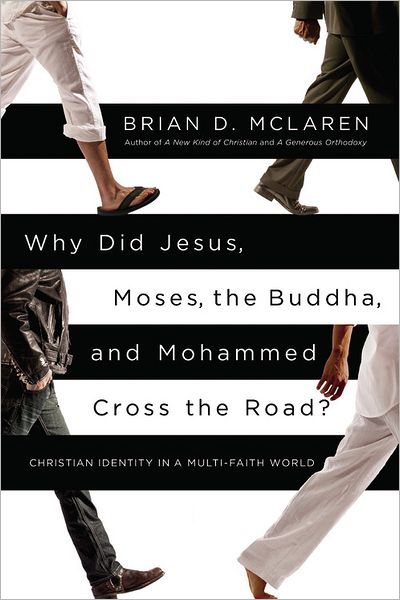 hy Did Jesus, Moses, the Buddha,
hy Did Jesus, Moses, the Buddha,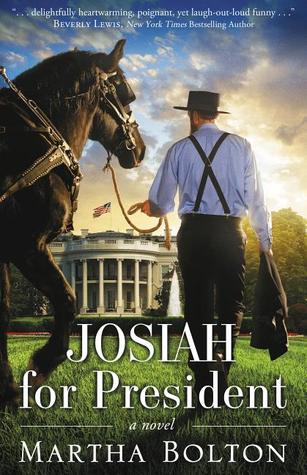 me and
me and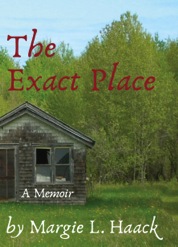 he Exact Place: A Memoir by Margie L. Haack (Kalos Press) $16.95
he Exact Place: A Memoir by Margie L. Haack (Kalos Press) $16.95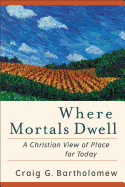 Mortals Dwell: A Christian View of Place for Today (Baker Academic; $29.99), a major work that examines the role of place in the Bible, in the history of Western philosophy and theology, and how such a category of thinking can affect our daily discipleship.
Mortals Dwell: A Christian View of Place for Today (Baker Academic; $29.99), a major work that examines the role of place in the Bible, in the history of Western philosophy and theology, and how such a category of thinking can affect our daily discipleship. 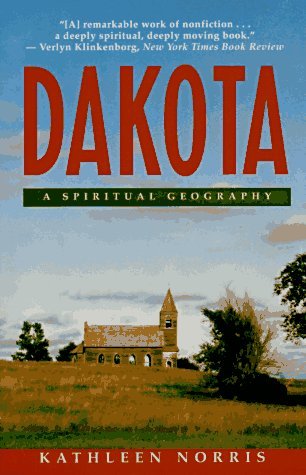 interesting, inspiring new memoir, The Exact Place, is yet another example of a contemporary Christian leader reminding us of the importance of place. I wanted to put her story alongside heavier non-fiction studies in order to suggest this. Indeed, in her beautiful, potent introduction Ms Haack cites Kathleen Norris’ evocative phrase “a spiritual geography” as she tells how her own rugged Northern Minnesotan upbringing shaped her personal landscape.
interesting, inspiring new memoir, The Exact Place, is yet another example of a contemporary Christian leader reminding us of the importance of place. I wanted to put her story alongside heavier non-fiction studies in order to suggest this. Indeed, in her beautiful, potent introduction Ms Haack cites Kathleen Norris’ evocative phrase “a spiritual geography” as she tells how her own rugged Northern Minnesotan upbringing shaped her personal landscape. 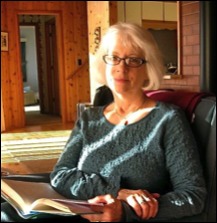 Ms Haack is certainly not trendy, and she did not long to share her childhood story to make some grandiose statement about place–that is my framing of it, the teacher/bookseller in me wanting to observe one important reason all of us should read these kinds of books, indeed, this book. Whether she likes me saying it or not, The Exact Place: A Memoir is important for this very reason, and is therefore instructional; useful, even. As with any good novel or biography, it raises good questions, allusively. It certainly doesn’t preach but intentional readers may be led to ponder many big questions. How might you think about your own sense of place? Do you live your life well-grounded, caring about real life in God’s real world? Do you know your place, your exact place? Do you want to shed your past? How would you describe your “spiritual geography” and personal landscape? This collection of almost old-fashioned storytelling will help you and those you give it to, I am sure.
Ms Haack is certainly not trendy, and she did not long to share her childhood story to make some grandiose statement about place–that is my framing of it, the teacher/bookseller in me wanting to observe one important reason all of us should read these kinds of books, indeed, this book. Whether she likes me saying it or not, The Exact Place: A Memoir is important for this very reason, and is therefore instructional; useful, even. As with any good novel or biography, it raises good questions, allusively. It certainly doesn’t preach but intentional readers may be led to ponder many big questions. How might you think about your own sense of place? Do you live your life well-grounded, caring about real life in God’s real world? Do you know your place, your exact place? Do you want to shed your past? How would you describe your “spiritual geography” and personal landscape? This collection of almost old-fashioned storytelling will help you and those you give it to, I am sure.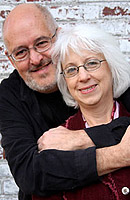 Margie and her husband, Denis Haack, run one of the most wonderful ministries of which we know (with one of most fabulously interesting websites, too, which you must visit.) They call themselves
Margie and her husband, Denis Haack, run one of the most wonderful ministries of which we know (with one of most fabulously interesting websites, too, which you must visit.) They call themselves  is told colorfully in another newsletter, which she does, nicely called Notes from Toad Hall. You can browse great archives of some of the stuff Margie writes at the Ransom webpage,
is told colorfully in another newsletter, which she does, nicely called Notes from Toad Hall. You can browse great archives of some of the stuff Margie writes at the Ransom webpage,